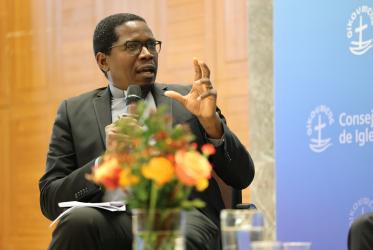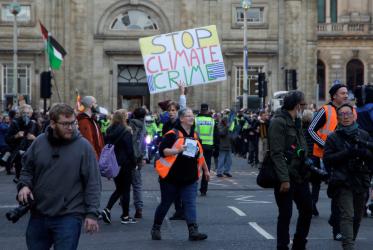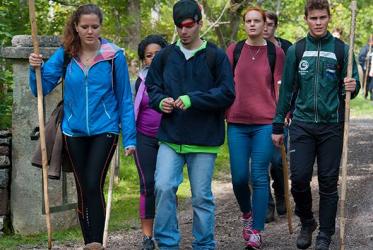Displaying 1 - 13 of 13
07 February 2024
Uppsala 1968: The times, they were a’changing
06 September 2022
Anders Göranzon: “I don't want to contribute to this inequality”
31 October 2019
WCC well-represented in Religions for Peace leadership
07 October 2019
Trying to do good for the world
18 December 2017
WCC Executive Committee speaks out on migrant crises
12 June 2015
Walking to Emmaus in the Holy Land, and Sweden
12 May 2015
1000 years of Christianity in Sweden celebrated
01 September 2014










